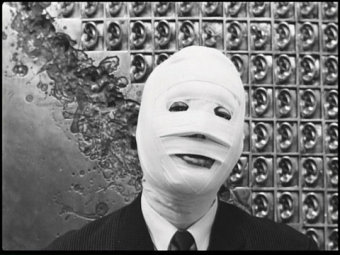Disability Insurance: Know Your Occupation
 Disability insurance is one of the foundations of a solid financial plan for physicians. Yet I’ve seen numerous mistakes financial advisors (read “insurance salesman”) have made when it comes to disability insurance for physicians.
Disability insurance is one of the foundations of a solid financial plan for physicians. Yet I’ve seen numerous mistakes financial advisors (read “insurance salesman”) have made when it comes to disability insurance for physicians.
If you do a Google search on “disability insurance for physicians” you’ll come across a large number of insurance salesman that claim to specialize in physician disability insurance. It’s easy to understand why: after all insurance products pay some hefty commissions. For most of these guys, it’s “sell and go away.” Once you’re sold the product that’s generally where the relationship ends. Some of these guys have sold disability policies that are woefully inadequate to several of my physician clients.
I’ve seen this happen with the most important aspect of disability insurance, and that’s the definition of disability. You need to look at your policy and determine exactly what “total disability” means. While you may think that total disability is a uniform definition, it’s actually defined in 3 general ways.
The first definition of total disability is “any occupation.” This means that if you become totally disabled, your disability policy will pay your monthly benefit as long as you do not work in any other occupation. In other words let’s say you’re a surgeon and you develop a herniated disc in your neck causing persistent radiculopathy. If this is a long term disability that precludes you from performing surgery and you have an “any occupation” disability definition in your disability policy, then you won’t be allowed to work at Starbucks serving coffee. If you do then your disability benefits will stop.
The second definition is “own occupation.” This means that even if you become totally disabled in your current occupation, your disability policy will pay your monthly benefit even if you work in another occupation. So going back to the example of the surgeon above, you could still receive disability benefits at the same time as serving coffee at Starbucks. So as you can see having an “own occupation” definition of total disability is far more desirable than “any occupation” coverage.
The third definition is “modified own occupation.” A lot of physicians disability policies allow “own occupation” coverage for the first 2 or 3 years of disability and then change that to “any occupation” coverage after that time. So the surgeon who becomes disabled and works at Starbucks would be able to get disability benefits for the first 2-3 years and then those benefits would stop. Look at your disability policy to see if you have this mixed definition. When disability insurance for physicians became more restrictive several years ago, these types of policies were common.
Recently insurance companies have loosened up a bit on the definition of disability for physicians. So if you have an “any occupation” or “modified any occupation” disability policy, you should inquire about “own occupation” coverage. There is even one company that now writes specialty specific “own occupation” coverage. So if you’re a gastroenterologist and you become disabled, you could still practice medicine (say urgent care) and still receive disability benefits.





 Post a Comment
Post a Comment
Reader Comments